
- Free Article: No
- Contents Category: Russia
- Custom Article Title: Two books on Russia and Ukraine
- Review Article: Yes
- Article Title: One Nation?
- Article Subtitle: Two books on Russia and Ukraine
- Online Only: No
- Custom Highlight Text:
The political scientist Karl Deutsch once said that a nation is a group of people united by a mistaken view about the past. These two new accounts of the history of relations between Russia and Ukraine, and the nationalist distortions of that history, would seem to bear him out. Vladimir Putin’s historical arguments for the war against Ukraine are widely accepted by his fellow countrymen and women, prompting the Russian journalist Mikhail Zygar to argue, in War and Punishment, that this ‘imperialist’ history is ‘inherently addictive’ and ‘our disease’. But this is not a vice unique to Russians: the Australian historian Mark Edele points out, in Russia’s War Against Ukraine, that Ukrainian governments have also indulged in a ‘clumsy politics of memory’ by celebrating anti-Semitic, anti-Polish, and anti-Russian nationalists.
- Article Hero Image (920px wide):
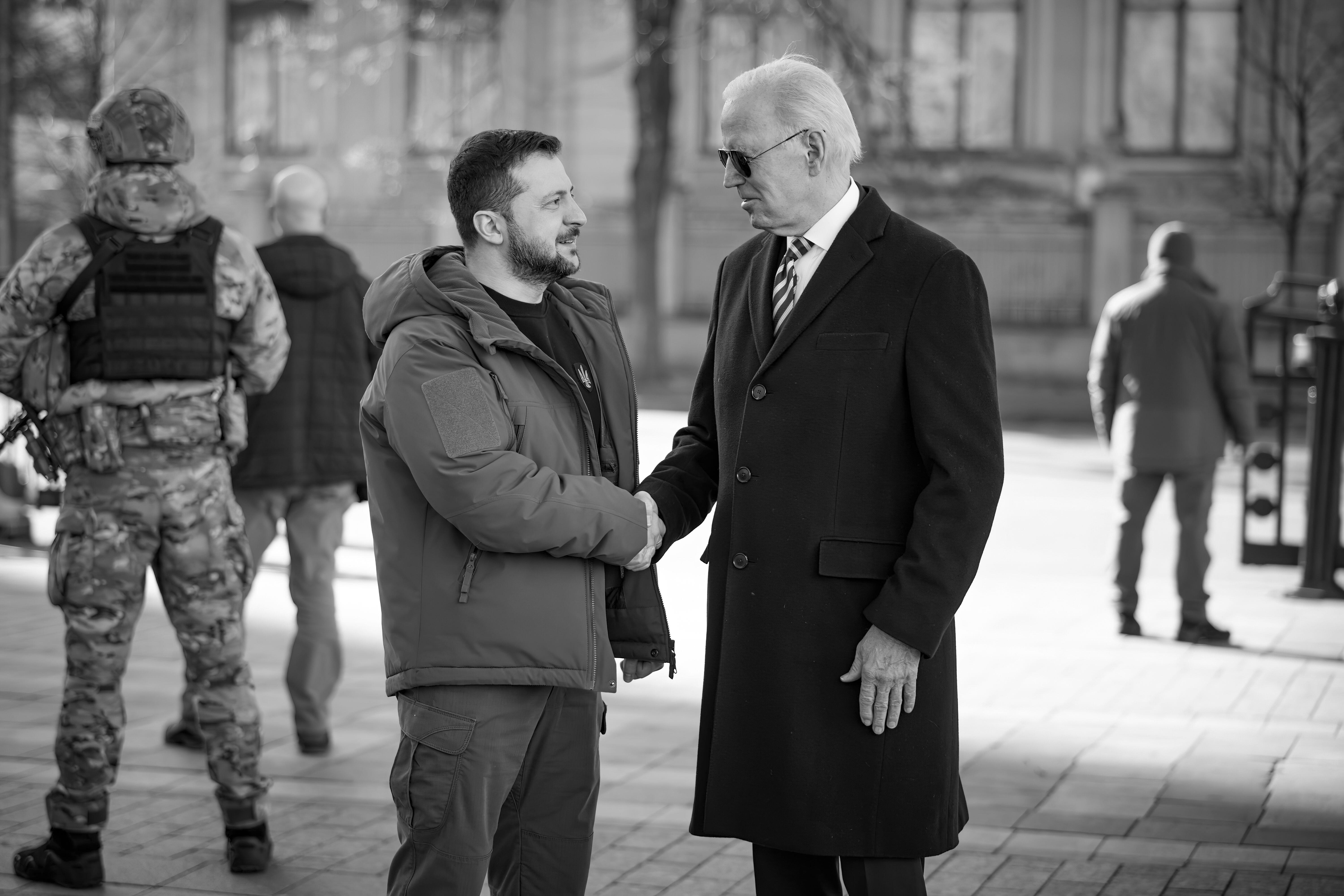
- Article Hero Image Caption: Volodomyr Zelensky and Joe Biden in Kyiv, February 2023 (American Photo Archive/Alamy)
- Featured Image (400px * 250px):
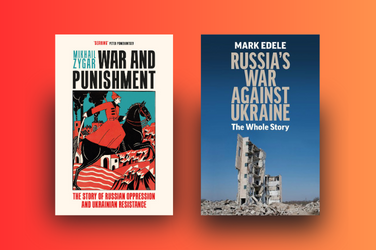
- Alt Tag (Featured Image): Nick Hordern reviews two new books on Russia and Ukraine
- Book 1 Title: War and Punishment
- Book 1 Subtitle: The story of Russian oppression and Ukrainian resistance
- Book 1 Biblio: Weidenfeld & Nicolson, $34.99 pb, 428 pp
- Book 1 Cover Small (400 x 600):
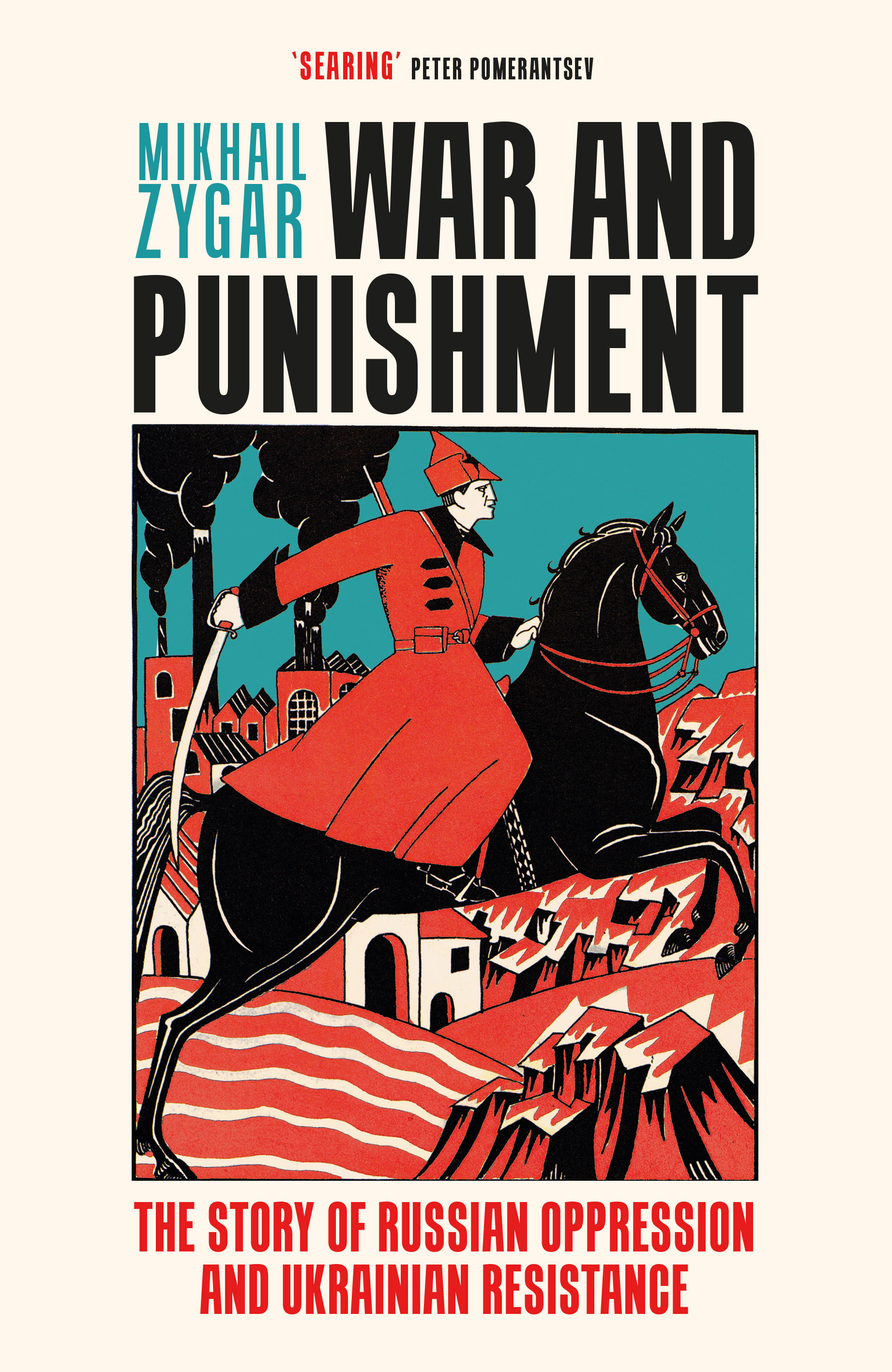
- Book 1 Cover (800 x 1200):

- Book 2 Title: Russia's War Against Ukraine
- Book 2 Biblio: Melbourne University Publishing, $32 pb, 216 pp
- Book 2 Cover Small (400 x 600):
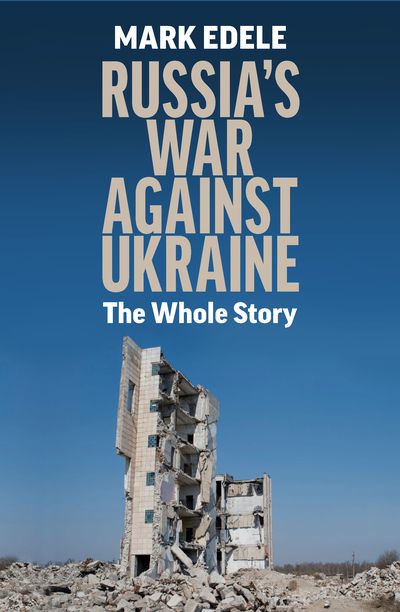
- Book 2 Cover (800 x 1200):

The histories of Russia and Ukraine since the nineteenth century are reasonably well known, but they were the culmination of a millennium of uneasy coexistence. Six months before his invasion of Ukraine, Putin spelt out the case for its forcible incorporation into Russia is his notorious essay ‘On the Historical Unity of Russians and Ukrainians’, which argued that Russia and Ukraine derive, in united and unbroken continuity, from the same medieval state, Rus, as do their Orthodox churches and their languages. Actually, nationalists in both camps trace their origins to Rus, which emerged in the territory of today’s Ukraine, extended north into that of today’s Russia, and lasted, in one form or the other, until the thirteenth century. But just the name of this supposed ancestral polity brings us to one of the major divides between the two countries: language. Is its proper name, to use the Russian spelling, ‘Kievan Rus’ or, to use the Ukrainian, ‘Kyivan Rus’? The Russian nationalist view is that, just as there is no such thing as a separate Ukrainian nation, there is no such thing as a separate Ukrainian language – merely a corrupt dialect of the mother tongue. Successive regimes in Moscow – tsarist, communist – suppressed the use of Ukrainian and promoted Russian in its place.
For Putin and his fellow true believers, Kyivan Rus brought together the three ‘tribes’ – Russian, Belarussian, and Ukrainian – that make up the ‘Greater Russian’ nation. But the unity of this ancestral nation was shattered by foreign conquerors, and it is what happened over the next centuries that, according to Edele, distinguished them from each other. The people living west of the Dnipro River at first came under the influence of Lithuanian and then Polish rulers, during which time the cultural features which made them a distinct people emerged, speaking a distinct language: Ukrainian.
Then followed a series of key events which entwined the fortunes of modern Ukrainians and Russians. In 1654, Bohdan Khmelnytsky, a Cossack leader in revolt against his Polish overlords, signed a treaty with Russia. From the Russian viewpoint, this was a submission, an acknowledgment of Moscow’s suzerainty; from the Ukrainian, it was a military alliance misinterpreted by the Kremlin. In 1708, another Cossack leader, Ivan Mazepa, defected from the Russians and joined his forces with an invading Swedish army. In the Ukrainian view, this was a brave bid for national freedom; in the Russian, a base act of treachery. In 1764, Catherine the Great ordered the abolition of the Cossack state and Russification of Ukraine. In the Russian view, this was part of her great work of nation-building; in the Ukrainian, the wanton destruction of Cossack autonomy. Then in 1919 Moscow established the Ukrainian Soviet Socialist Republic; in Putin’s eyes, this ‘creation’ of an ‘artificial’ quasi-state was an entirely avoidable own goal by Lenin, and it has fallen to him to correct the Bolshevik leader’s appalling historical error. In fact, the actual precursor of the modern country was known as the Ukrainian People’s Republic, and it had been established in Kyiv in 1918 by a representative body drawn from civil society. Lenin created the Ukrainian SSR because he wanted to draw leftist support away from the People’s Republic, but Ukrainian sovereignty and national identity were never Moscow’s to bestow in the first place.
Zygar and Edele cover the history of Soviet, then independent, Ukraine in much greater depth than they do the pre-twentieth century epoch. The story is always the same: whatever the nominal status of Ukraine, Moscow seeks to suborn it to the Kremlin’s will. The Holomodor – the great famine of 1932–33 – was conceived by Stalin as a way of crushing peasant resistance in Ukraine (and Russia and Kazakhstan). Then came the Great Terror that eviscerated the Ukrainian (and the Russian) political leadership, which paid the price for Stalin’s paranoia. Closer to the present day, two major upheavals – the Orange Revolution of 2004 and the Euromaidan of 2013–14 – were mass movements which defeated attempts by the Kremlin’s catspaw, the ‘odious’ (Zygar’s word) Viktor Yanukovych, to assert Moscow’s authority over Ukraine.
These two books describe how the current conflict came about. But just as important is the insight they afford into why it came about: because of the overweening influence of history on Russian thinking. Putin can only conceive of the ‘near abroad’, the post-Soviet states like Ukraine and Georgia, as being part of the ‘the Russian patrimony’. Therefore, he doesn’t accept they have a sovereign right to follow an independent foreign policy, and is angered when the prospect of their joining the European Union and/or NATO arises. Edele makes the argument that Putin’s historically inflected imperialism is so fundamental to his and Russia’s outlook that, rather than being avoidable, the current war was probably inevitable – and may continue for a long time. This, of course, is the exact opposite of the outcome desired by Ukraine and the Western Alliance. But a long, frozen conflict won’t give Putin what he wants, either: unification.
For years now, Ukraine has been leaving the post-Soviet space, drifting out of Russia’s cultural orbit and towards Europe and the United States, and the war will only speed its trajectory. Another strand to the Russian nationalist conception of the indissoluble unity of the two countries is religious, based on the fact that, for three centuries, the majority of Orthodox Christians in what is now Ukraine came under the Patriarchate of Moscow. And yet now religion has also become a source of division, and the rift grows wider: in July, Ukraine announced it would no longer celebrate Christmas on 7 January, as is Russian Orthodox practice.
Karl Deutsch’s definition of a nation actually has two parts: he said a nation is a group of people united by a mistaken view about the past – and a hatred of their neighbours. If this sounds cynical, Deutsch had first-hand experience of toxic nationalism: he was a German-speaking Jew who was born in the Austro-Hungarian Empire, grew up in Czechoslovakia, and wound up in exile from the Nazis. He knew exactly what he was talking about, and he probably would have agreed with Mikhail Zygar’s and Mark Edele’s analysis.
It would be far too sweeping to characterise the relationship between Ukrainians and Russians as one of hatred. But the gap between the two is widening fast: as President Volodymyr Zelensky put it in a message addressed to the Russian people: ‘Do you still think that we are “one nation?” ... history will put everything in its place.’


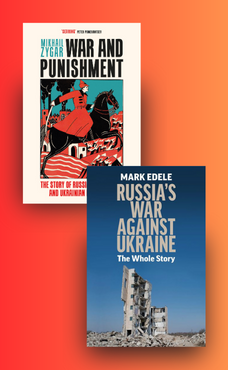
Comments powered by CComment